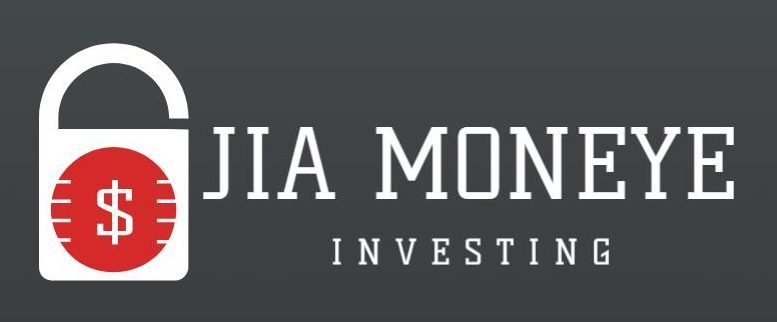
Real Estate Market Trends: What’s Next?
Predicting the Future: Upcoming Trends in the Real Estate Market
The real estate market is a dynamic entity, constantly evolving and adapting to the changing economic landscape. As we look ahead, several key trends are emerging that could shape the future of this industry. Understanding these trends can help investors, homeowners, and real estate professionals make informed decisions and stay ahead of the curve.
One of the most significant trends we’re seeing is the shift towards more sustainable and energy-efficient homes. As environmental concerns continue to rise, more and more people are seeking out properties that are not only comfortable and stylish, but also kind to the planet. This is leading to an increase in demand for homes with features like solar panels, energy-efficient appliances, and sustainable building materials. This trend is expected to continue, with green homes becoming the norm rather than the exception.
Another trend that’s gaining momentum is the rise of smart homes. With advancements in technology, homes are becoming more connected and automated. From smart thermostats that adjust the temperature based on your habits, to security systems that can be controlled from your smartphone, the possibilities are endless. This trend is not just about convenience, but also about safety and efficiency. As technology continues to evolve, we can expect to see even more innovative features in our homes.
The real estate market is also seeing a shift in demographics. Millennials, who are now entering their prime home-buying years, are becoming a major force in the market. This generation has different priorities and preferences compared to their predecessors. They value experiences over possessions, and are more likely to choose a smaller, more affordable home in a vibrant neighborhood over a large, expensive house in the suburbs. This is leading to a rise in demand for urban living, with walkable neighborhoods and easy access to amenities.
On the other end of the spectrum, we’re seeing a growing trend of aging in place. As the baby boomer generation gets older, many are choosing to stay in their homes rather than move to retirement communities. This is leading to an increase in demand for homes that are accessible and adaptable, with features like single-level living and wide doorways.
Finally, the way we buy and sell homes is changing. With the rise of online platforms and virtual tours, the home buying process is becoming more digital. This trend was accelerated by the COVID-19 pandemic, which forced many people to do their house hunting online. While the convenience of online home shopping is undeniable, it’s also leading to a more competitive market, with homes selling faster and often for above asking price.
In conclusion, the future of the real estate market is shaping up to be quite exciting. From sustainable homes to smart technology, changing demographics to new ways of buying and selling, these trends are set to redefine the industry. As we navigate these changes, it’s important to stay informed and adaptable. After all, the only constant in the real estate market is change.
What’s Next? A Comprehensive Guide to Emerging Real Estate Market Trends
The real estate market is a dynamic entity, constantly evolving and adapting to the changing economic landscape. As we move forward, several emerging trends are set to shape the future of this industry. This comprehensive guide will delve into these trends, providing a glimpse into what’s next for the real estate market.
One of the most significant trends is the rise of technology in real estate, often referred to as PropTech. This involves the use of digital innovation to streamline and enhance real estate transactions and management. From virtual reality tours to blockchain-based contracts, PropTech is revolutionizing the way we buy, sell, and manage properties. As we move further into the digital age, the adoption of these technologies is expected to accelerate, making real estate transactions more efficient and transparent.
Another trend to watch is the shift towards sustainable and green living. As environmental concerns become more prominent, there’s a growing demand for eco-friendly homes. This includes properties with energy-efficient features, such as solar panels and smart home technology, as well as those built with sustainable materials. This trend is not just limited to residential properties; commercial real estate is also seeing a surge in demand for green buildings. As sustainability becomes a key consideration for buyers and tenants, it’s a trend that’s set to continue shaping the real estate market.
The COVID-19 pandemic has also left a lasting impact on the real estate market, sparking new trends that are likely to persist. One of these is the increased demand for properties in suburban and rural areas. As remote work becomes more prevalent, many people are opting for homes in less crowded areas, away from the hustle and bustle of city life. This trend is driving up property values in these areas, a shift that could reshape the real estate landscape in the years to come.
In addition, the pandemic has highlighted the importance of having flexible and adaptable spaces. Homes that can easily be converted into home offices or learning spaces are becoming increasingly desirable. This is influencing both the design and valuation of properties, with homes that offer this flexibility commanding higher prices.
Lastly, the real estate market is seeing a shift towards a more customer-centric approach. Today’s buyers and sellers are more informed and have higher expectations. They demand transparency, convenience, and personalized service. This is driving real estate professionals to adopt new strategies and tools to meet these demands, from using big data to provide personalized property recommendations, to offering virtual consultations and viewings.
In conclusion, the real estate market is on the cusp of significant change. The rise of PropTech, the shift towards sustainability, the impact of the pandemic, and the increasing demand for customer-centric services are all trends that are set to shape the future of this industry. As we navigate these changes, it’s an exciting time to be involved in real estate, whether you’re a buyer, seller, investor, or professional. By staying informed about these trends, you can make more informed decisions and take advantage of the opportunities that lie ahead.
Navigating the Future: An Insight into the Next Big Trends in Real Estate Market
The real estate market is a dynamic entity, constantly evolving and adapting to the changing economic landscape. As we move forward, it’s crucial to stay informed about the latest trends and predictions to navigate the future of this sector effectively. So, what’s next for the real estate market? Let’s delve into some insights that could shape the future of this industry.
One of the most significant trends we’re likely to see is the continued rise of technology in real estate, particularly in the form of PropTech. PropTech, or property technology, refers to the use of information technology to help individuals and companies research, buy, sell, and manage real estate. From virtual reality tours to blockchain transactions, PropTech is revolutionizing the way we interact with property. As technology continues to advance, we can expect to see even more innovative solutions that streamline and enhance the real estate experience.
Another trend to watch is the shift towards sustainable and green living. As environmental concerns become increasingly prominent, more and more people are seeking eco-friendly homes. This demand is driving developers to incorporate sustainable features into their designs, such as energy-efficient appliances, solar panels, and green spaces. This trend is not just about reducing our carbon footprint; it’s also about creating healthier living environments. Therefore, properties that prioritize sustainability are likely to be highly sought after in the future.
The concept of ‘live, work, play’ is also gaining traction in the real estate market. This trend is all about creating mixed-use developments that combine residential, commercial, and recreational spaces. The idea is to create communities where people can live, work, and play without having to commute long distances. This trend is particularly appealing to millennials and younger generations who value convenience and community. As such, we can expect to see more of these developments popping up in the future.
The rise of remote work is another trend that’s reshaping the real estate market. The COVID-19 pandemic has shown us that many jobs can be done from anywhere, leading to a surge in demand for homes with dedicated office spaces. This trend is likely to continue even post-pandemic, as more companies embrace flexible work arrangements. As a result, properties that can accommodate remote work are likely to be in high demand.
Lastly, we can’t ignore the impact of demographic shifts on the real estate market. As baby boomers age, there’s a growing demand for senior-friendly housing. On the other end of the spectrum, millennials are entering their prime home-buying years, driving demand for affordable starter homes. Understanding these demographic trends can help investors and developers anticipate demand and make strategic decisions.
In conclusion, the future of the real estate market is set to be shaped by a range of factors, from technological advancements to environmental concerns, changing work patterns, and demographic shifts. By staying informed about these trends, individuals and businesses can make savvy decisions and navigate the future of real estate with confidence. While the future is always uncertain, one thing is clear: the real estate market is far from static, and those who adapt to its changing landscape are likely to thrive.


